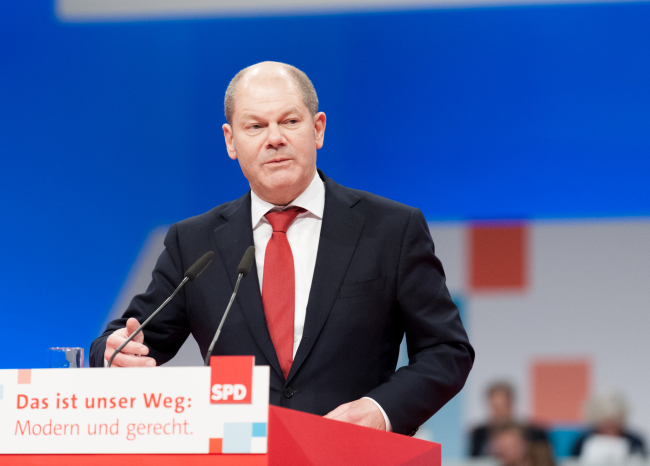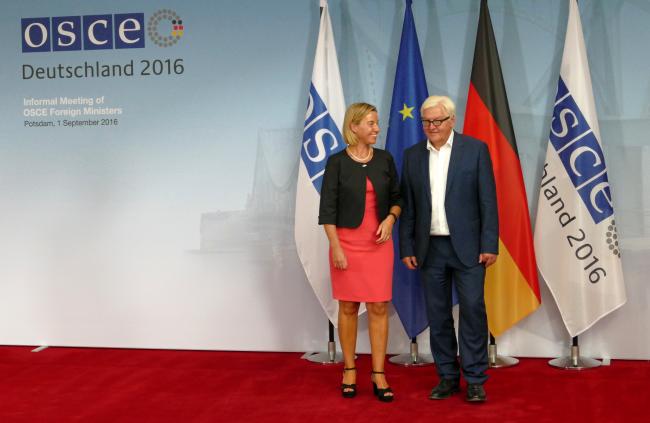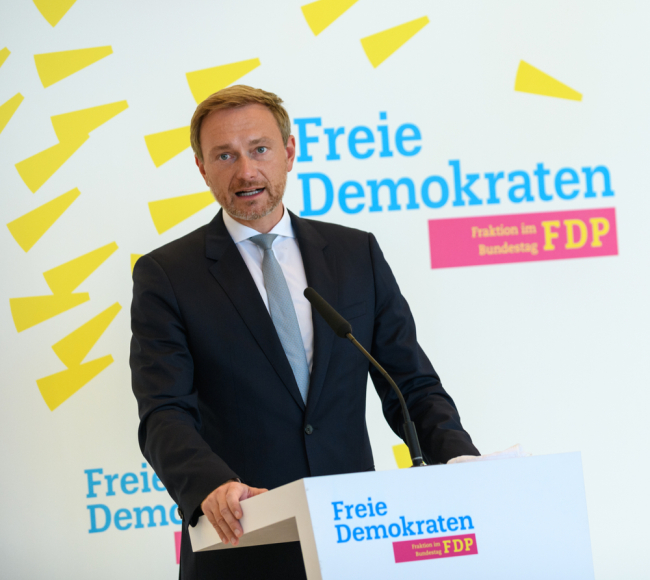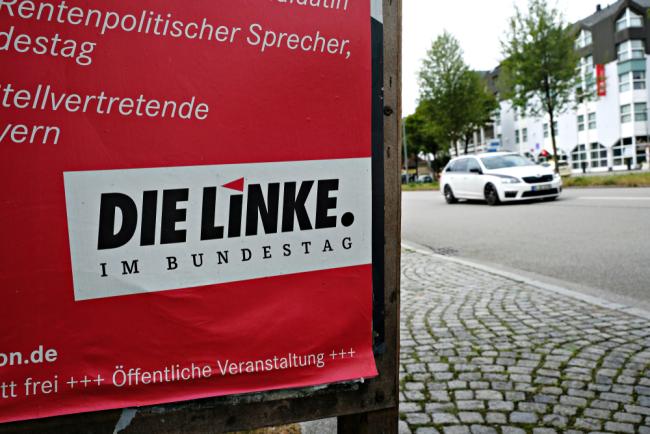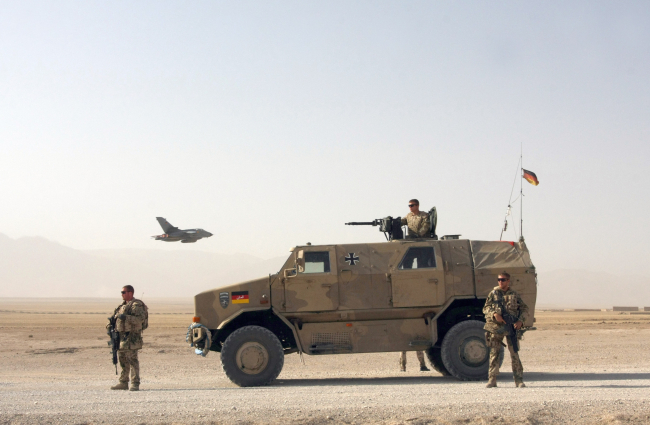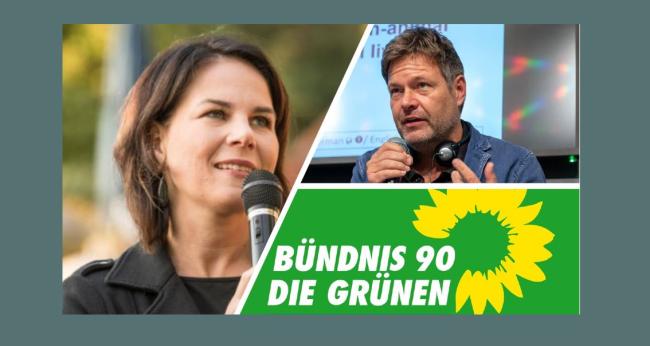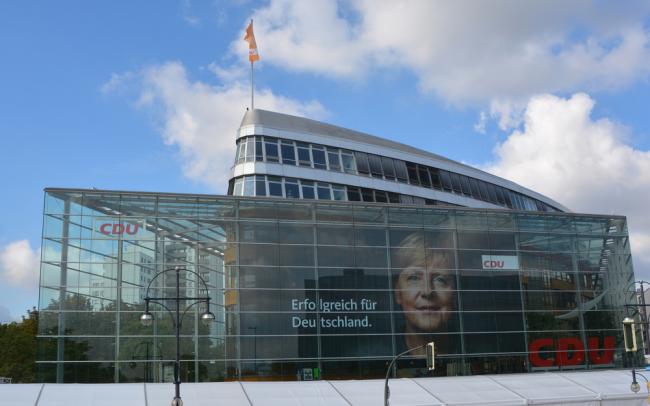German Economy
Germany is the leading economic power in Europe with a highly internationalized system. It is currently compelled to adapt to a declining globalization and a transition in its energy model.
The SPD Between Programmatic Reorientations and Political Continuity?
Just like most of the European Social-Democratic parties, the Social Democratic Party of Germany (SPD) has been going through a major crisis for several decades. Its centrism that got Gerhard Schröder elected in 1998 and 2002 is seen as a betrayal by the party's traditional electoral base.
The Importance of the OSCE in German Diplomacy
As an essential platform for multilateralism, the Organization for Security and Co-operation in Europe (OSCE) has always been important to German diplomacy, although in varying degrees. Historically, Germany’s support for the Conference on Security and Co-operation in Europe (CSCE) process was motivated by the aim of mitigating and ultimately overcoming the division of Germany.
A “Coronavirus Presidency”: The Consequences of the Health Crisis for the German Presidency of the Council of the EU
On July 1, 2020, Germany assumed the six-month EU Council Presidency, at a time of global pandemic crisis. This presidency has thus quickly become a “corona presidency” in its objectives and functioning, itself a victim of the pandemic.
The German Presidency of the EU Council 2020. What Role for Paris and Berlin?
The German EU presidency in the second half of 2020 was Angela Merkel’s last presidency, shortly before her chancellorship ends in 2021. It was therefore expected that the Chancellor would use all her experience and influence to achieve positive results.
The Free Democratic Party (FDP): Liberal Corrective Again After the 2021 Bundestag Election?
After the regional elections in Rhineland-Palatinate and Baden-Württemberg in March 2021, the FDP is attracting more attention again, mainly because of its traditional role as a coalition party.
What Is Left and to Whom? Germany’s Left-wing Party Die Linke and the Search for Its Identity
In late February 2021, Germany’s left-wing party Die Linke gave themselves a new party executive. The new team is supposed to lead the party into the federal elections in September and, if possible, into a national center-left government.
Circumstantial Pacifism: Political Parties and the Participation of the Bundeswehr in Foreign Operations
In Germany's parliamentary democracy, political parties play an important role in mandating Bundeswehr missions abroad and in overseeing their deployment. The political debate on these deployments is polarized between opponents, who are called “pacifists”, and supporters, who are called “militarists”.
Baden-Württemberg under Green Leadership – Balance Sheet of Two Government Periods under Winfried Kretschmann
Baden-Württemberg's economic and social structure offered good starting conditions for center-right parties from the beginning, which the Christian Democratic Union of Germany (CDU) initially knew how to use for itself. From 1953 to 2011 the Prime Minister belonged to the CDU. In 2011 the Greens and the Social Democratic Party of Germany (SPD) won an election over the CDU for the first time. Winfried Kretschmann was elected the first Green Prime Minister in a German state.
The German Green Party, a new People's Party?
In the context of increasing awareness of the climate crisis, environmental parties across the EU obtained high scores in the European elections of May 2019, reaching 20% in Germany, 17% in Ireland, 16% in Finland and 13 % in France. Meanwhile, far-right parties gained strength.
Uncertain Times Lie Ahead. The CDU at the End of the Merkel Era
Since 2018, the Christian Democratic Union (CDU - Christlich Demokratische Union) has been confronted with a long-lasting leadership crisis. Annegret Kramp-Karrenbauer, Merkel’s favorite candidate for the position of party leader, was not able to maintain herself at the top of the party and resigned after only 15 months.
Support independent French research
Ifri, a foundation recognized as being of public utility, relies largely on private donors – companies and individuals – to guarantee its sustainability and intellectual independence. Through their funding, donors help maintain the Institute's position among the world's leading think tanks. By benefiting from an internationally recognized network and expertise, donors refine their understanding of geopolitical risk and its consequences on global politics and the economy. In 2025, Ifri supports more than 80 French and foreign companies and organizations.








